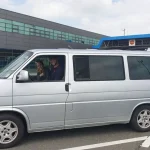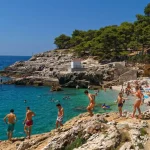May 17, 2020 – In the absence of clear travel information, TCN visits the Croatia Slovenia border to find who is – and who is not – allowed to cross the border into Croatia. It was an illuminating visit.
Are Croatia’s borders open or not? If yes, who can cross them, and under what circumstances? With so many tourists wanting to come, can they jump in the car and come?
After Croatia led the world in clear communication on the health aspects of the corona threat, that clarity seems a distant memory. Stories of foreign tourists entering the country are flooding the media, and it seems that the season is starting. But is it?
Here is the official COVID-19 page from the Ministry of Tourism which one would hope would provide the answer. If you can find it, you are a better man than me.
According to the Croatian National Tourist Board recently revamped travel info page, all the answers can be found at a very helpful email address. Insider tip – good luck with that one from personal experience.
Here is some useful info from Croatian Roads (HAK), but with all those specific questions resting on the Ministry of Tourism responding to an email.
I am still trying to find out the actual procedure for crossing the border. As my colleague patiently waited for the email reply (now Day 4), I concluded that there was nothing better than finding out from personal experience.
Why not go to the Croatia Slovenia border myself and see what is happening. As these are sensitive times, I contacted the Ministry of the Interior of both Croatia and Slovenia, stating my intentions and asking for their assistance.
Croatia 1, Slovenia 0.
I received an automated response from the Slovenians the next day (in Slovenian). I have heard nothing since. From the Croatian side, I received this:
Dear Sir,
we agree with the recording at the said border crossing, without statements from police officers and other officials.
Please comply with the Law on State Border Surveillance, follow the instructions of police officers and keep your stay at the border crossing to a minimum.
The same is necessary for the smooth implementation of measures and actions carried out at the border crossing.
We also confirm that we have received your inquiry sent to us on 15th of May 2020., and we inform you that we will send you an answer when we gather all the necessary information.
Best regards,
There are three border crossings just outside Zagreb around Bregana, and I decided to visit all three, the two small ones first.
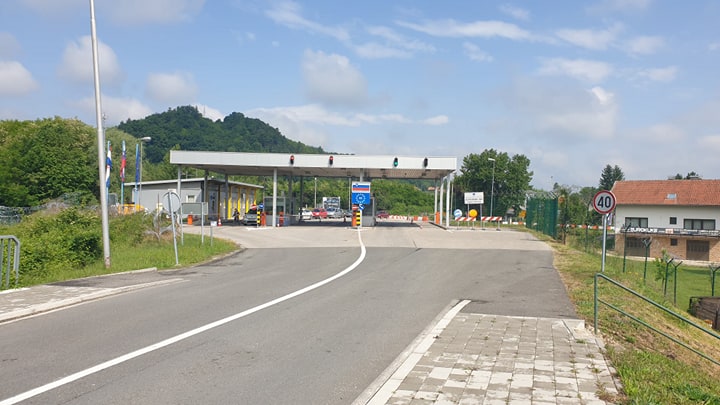
The first was quiet, with just a few cars coming from the Slovenian side. The Croatian border official was polite and let me proceed to her Slovenian colleague, who declined to answer questions as I didn’t have a Slovenian official approval.
There were a couple of Slovenian bikers who were happy to talk to me. This was not their first time across the border. They had a business in the next village, all the appropriate paperwork, so the crossing was problem-free. Get the necessary paperwork, an invitation from a Croatian business, for example, and all is fine.
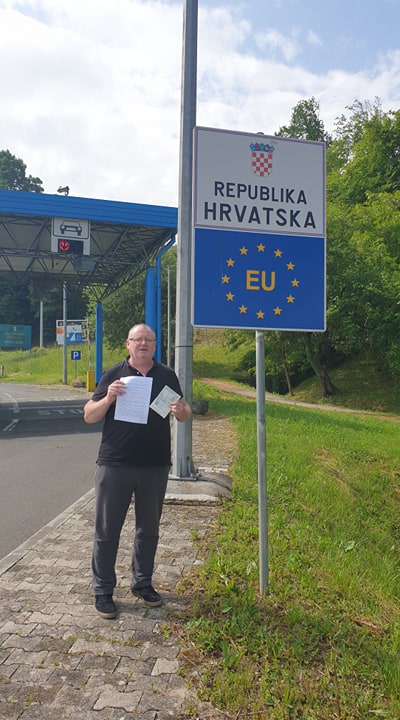
I was planning to film a video report but I now how sensitive the police are about filming at borders. Ok, true story – I left my phone charger in Dugopolje and my phone died.
I did get a copy of the recommendations (and in English!) for each tourist arriving. You can see the advice at the bottom of this article.
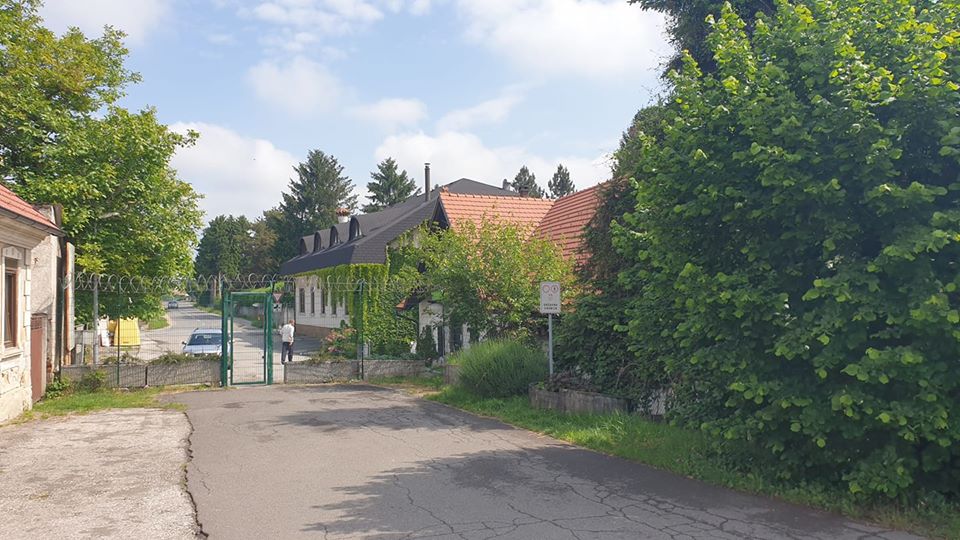
Next up, the best Croatia Slovenia border of them all (if you really want to research the subject, here is the Total Croatia guide to crossing the Croatia Slovenia border in normal times).
Before the migrant crisis, this border had one of the coolest border restaurants ever – the bar was in one country, the toilets in the other. Imagine having to leave the Schengen zone to pee!
The restaurant is now closed for normal service, but it does still service groups, the owner told us through the gate today. But the erection of the wire and gate during the migrant crisis killed all business. The border is normally open from 0600 – 2300, but has been closed these past few weeks – and remains so.
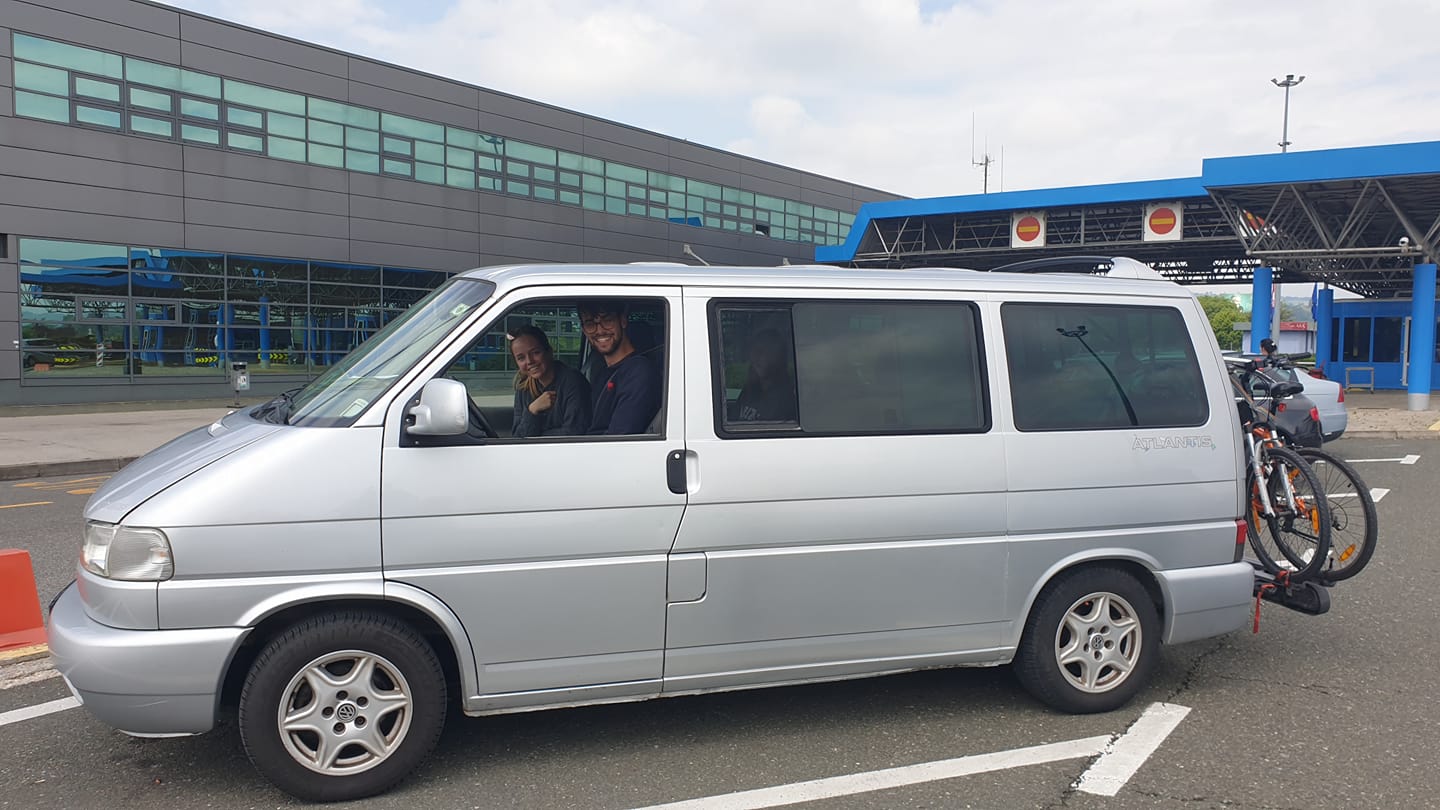
I introduced myself to the Croatian police, who were very polite, helpful and efficient. My documents checked, I was free to observe and to talk to people travelling both ways. I really liked thes happy Slovenians, who had been following the local news and got everything in place regarding paperwork. They were off to a campsite on Krk where their family had a property, and they made sure they had an official invitation, with a stamp for good measure.
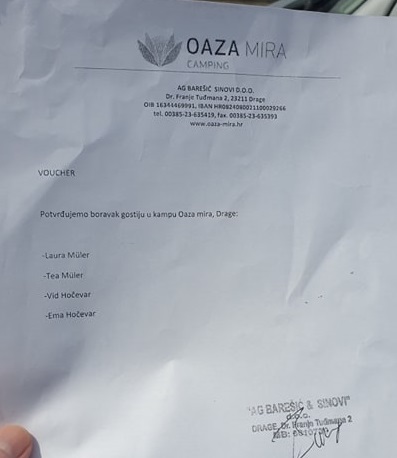
Now that the borders in Slovenia are open, they did not have to worry about self-isolation on return. This is an issue which people are asking about. Until I get official answers, all I can say is talk to your embassy about the latest info, both incoming to Croatia and when you return home. They will have the best (and official) info.
There were lots of foreign plates, mostly German, but few foreigners. The Croatian diaspora returning home from Germany, Austria, Holland. A Montenegrin living in Munich, who has been going back and forth for weeks.
Processing time was about 5 minutes per car, but this was the process that reassured me. For the word in Croatia is that the borders are open, which is great news for tourism. But it would be highly irresponsible to simply let everyone in without knowing where they are going.
And not everyone is getting in.
Currently, you can pass the border as an EU citizen if you have an official business invite, own real estate, or can prove a tourism reservation in a hotel or similar.
And if you can’t, you don’t come in.
The idea, I realised, is the ability to control the information in case of trouble.
The transit process (and PLEASE note, this is just the Croatian border, I did not get permission for the Slovenian one, is that you can rock up at the border, show your ID and certified reservation or business invite, or real estate papers, and be allowed in. They will want to know how long you will stay, address and your contact details, as well as physically showing your invitation. The registration process is a swipe of your ID, but then the time-consuming process of manually adding details of your invitation, contact details etc. Necessary but time-consuming.
By controlling the whereabouts of tourists who enter, it seems, this is how Croatia will control the corona threat. And not everyone gets in…
My favourite moment was the pre-crossing chat with a Slovenian guy from a local town. He winked and told me he was off to see his Croatian mistress for lunch and a bit of fun. Unfortunately, his illicit lover was left a little frustrated, as they both forgot to sort the official invite (presumably the wife might have found out). No entry.
Two very jolly Slovenian ladies of a certain age were thrilled to be able to get to their beloved Adriatic. They had no plans, the borders were open and they would decide where when they felt like it. No entry.
A Croat from Germany with a business meeting to attend in Zagreb. The invite consisted of an email. After a long discussion (and some phone calls), he was allowed through. Lesson learned and top recommendation – get a proper, stamped invitation. It will save time for you and all behind you, and will eliminate the risk of refusal.
And that’s as much as I can tell you, as someone not part of the system.
Check before you travel, make sure you have the documentation ready, and you should be fine.
Recommendations and instructions of the Croatian Institute of Public Health.
Croatian and foreign nationals entering the Republic of Croatia must comply with these recommendations and instructions in the period of 14 days following their crossing of the state border, as follows:
During the first 14 days following the entry into the Republic of Croatia, accommodation may be left only in absolutely necessary situations:
carrying out business activities if business was the purpose of entry into the Republic of Croatia, carrying out necessary activities with continuous increased hygiene measures in place.
When leaving accommodation in absolutely necessary situations, it is recommended to wear a mask or a covering for the nose and mouth, to keep a physical distance from others (a minimum of 1.5 meters) and to practice hand hygiene.
Hands should be washed as often as possible with warm water and soap and/or a hand disinfectant should be used that needs to be well rubbed on the palms.
Touching one’s face, mouth, nose and eyes should be avoided.
Using public transport should be avoided.
ln the means of transport, a person should preferably be alone or exclusively with persons with whom he/she shares accommodation.
Grouping and public gatherings should be consistently avoided.
During business meetings, it is necessary to meet with as few persons as possible, to ensure a physical distance of 1.5 meters and availability of disinfectants, to avoid unnecessary meetings.
During their stay in the accommodation, the persons concerned prepare the food themselves or use food and beverage delivery services.
Payments are made by using non-cash card payments or online services.
Body temperature should be measured every morning. lf it exceeds 37.2 degrees, it should be taken again after 10 minutes. lf the temperature again exceeds 37.2 degrees, the person should stay at home/one’s accommodation and contact the chosen general practitioner,
if any (Croatian nationals), or a competent local epidemiologist.
ln case of any symptoms of acute respiratory infection (cough, sore throat, high temperature, short breath/difficulty in breathing, loss of smell and taste), it is necessary to stay at home/your accommodation and contact the chosen general practitioner, if any (Croatian nationals), or a competent local epidemiologist.
ln case of sudden onset of severe, life-threatening symptoms, the person should contact the emergency medical services.
ln case of respiratory disease symptoms.
lf you develop respiratory disease symptoms (high temperature, cough, shortness of breath, difficulty in breathing, sore throat, weakness), you should contact your chosen doctor by phone who will, based on your medical condition, assess the need for you to be tested for the new coronavirus.
lf you require medical assistance for reasons other than a respiratory disease, you should phone your chosen doctor or one of the members of your household can contact the doctor for consultations and arranging a house call.
Do not visit healthcare facilities without having previously contacted them by phone.
You can find more information on the coronavirus disease and measures for reducing the risk of spreading the disease on the website of the Croatian Institute of Public Health, or from your chosen general practitioner and a competent local epidemiologist.


